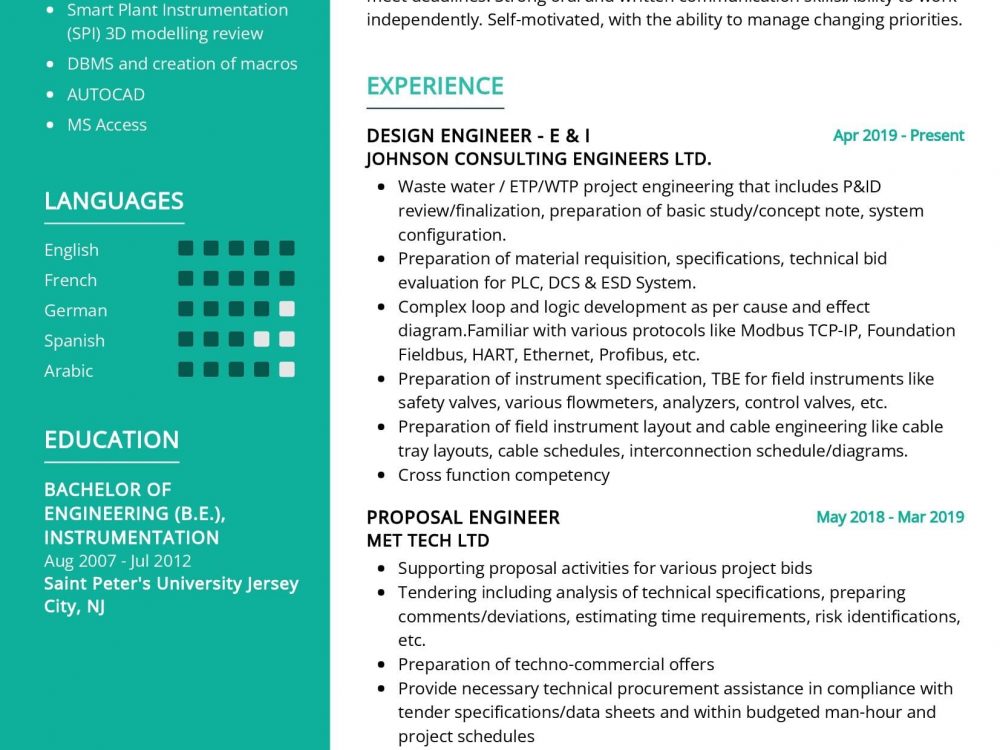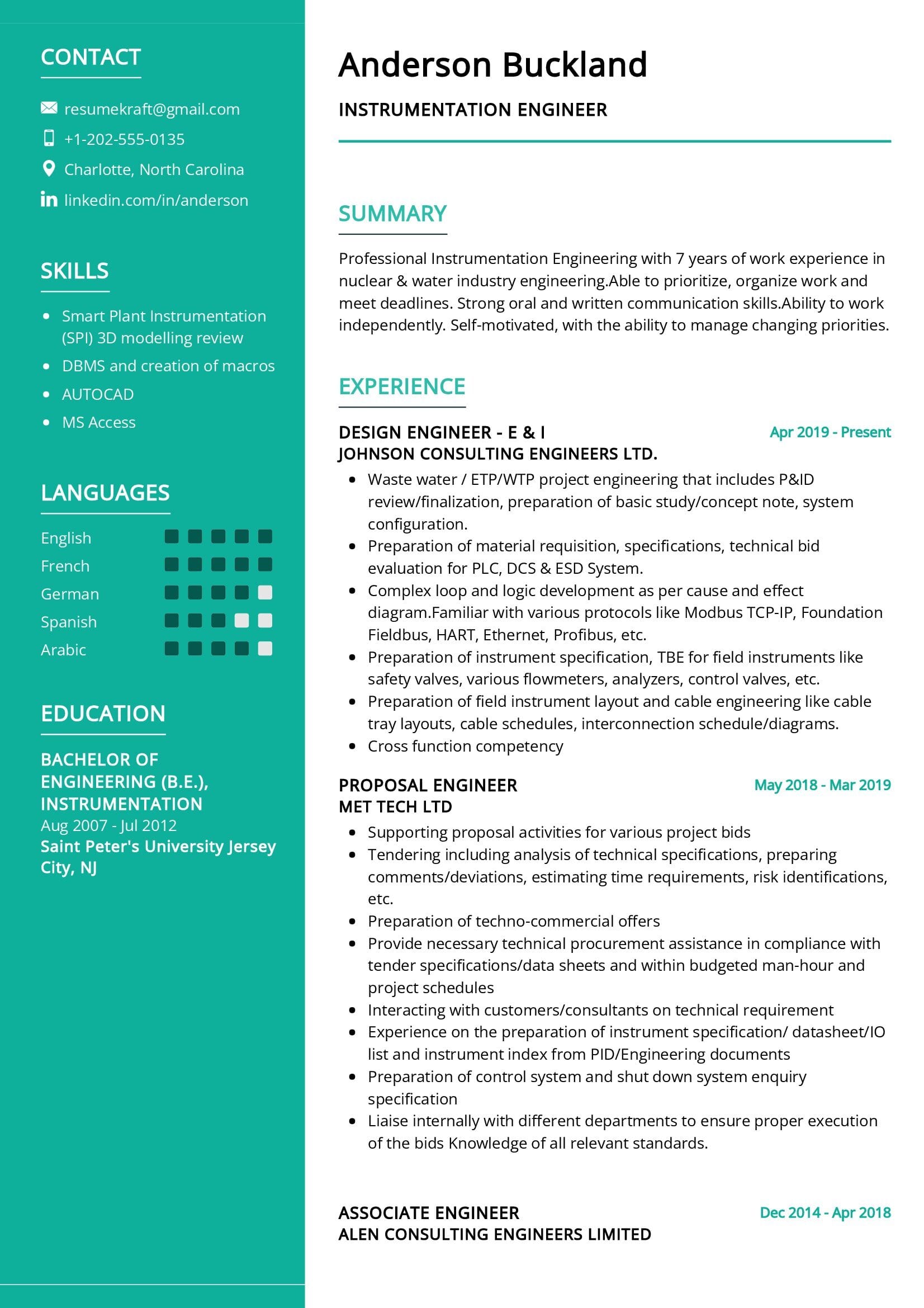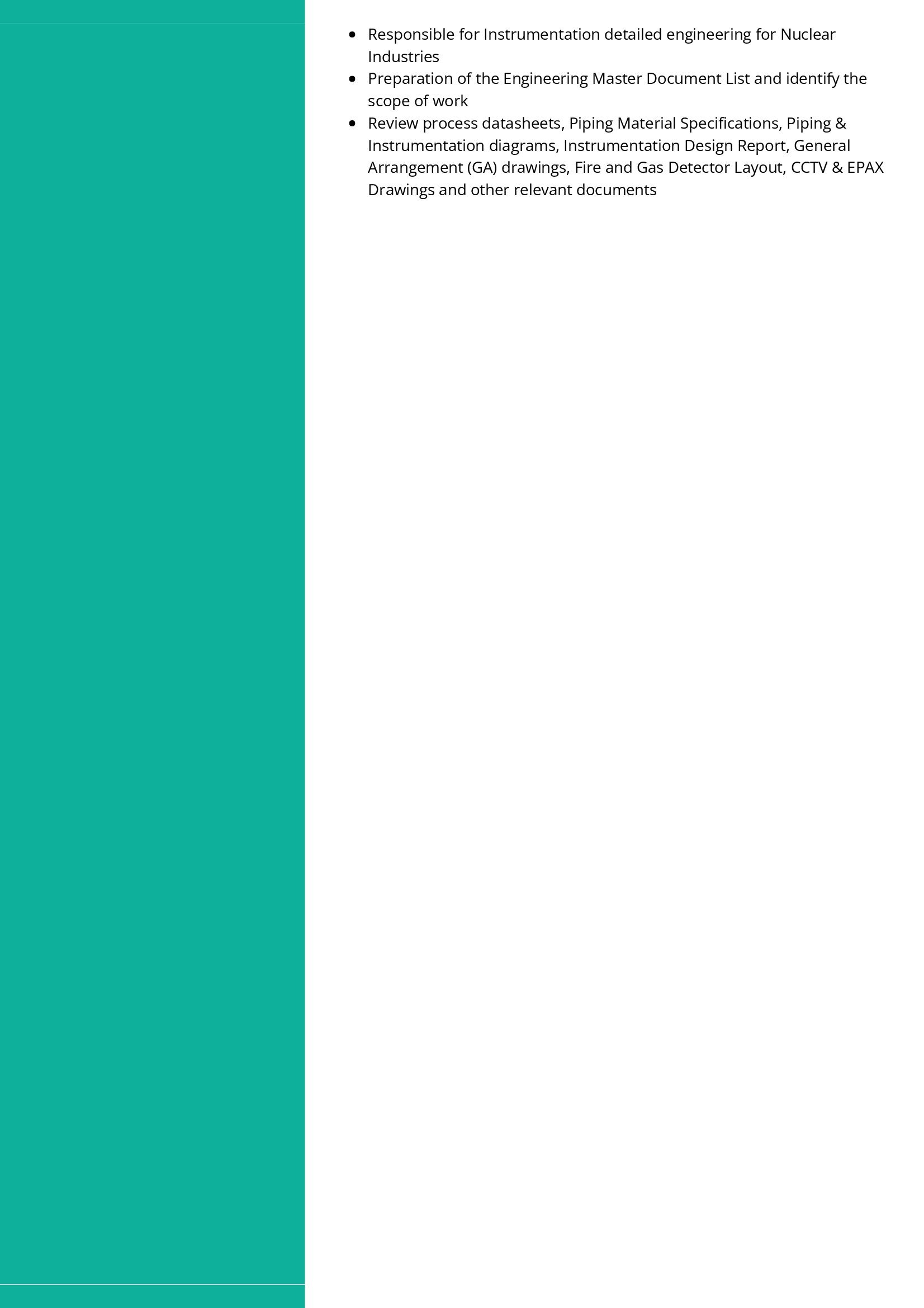Instrumentation Engineer: A Vital Role in Modern Industry
Instrumentation engineers play a crucial role in today’s industrial landscape, where precision and control are paramount. These professionals blend technical expertise with problem-solving skills to ensure that complex systems and processes operate efficiently and safely. In this article, we will delve into the multifaceted world of an Instrumentation Engineer, exploring their responsibilities, job requirements, and essential skills.
What Does an Instrumentation Engineer Do?
Instrumentation engineers are the unsung heroes behind the scenes of various industries, from manufacturing and energy production to healthcare and aerospace. They are responsible for designing, installing, and maintaining the instruments and control systems that monitor and manage various processes and machinery. The role involves a combination of technical know-how, analytical thinking, and a keen eye for detail.
An Instrumentation Engineer’s tasks encompass a wide range of activities, including:
- Designing and implementing control systems to automate industrial processes.
- Calibrating and maintaining instruments to ensure accuracy and reliability.
- Collaborating with other engineers to integrate instrumentation into larger systems.
- Diagnosing and troubleshooting problems in control systems and instrumentation.
- Staying up-to-date with the latest technological advancements in the field.
Now that we have a general understanding of what an Instrumentation Engineer does, let’s explore the qualifications and requirements for this role.
Instrumentation Engineer Job Requirements
Becoming an Instrumentation Engineer is a rewarding but demanding journey that requires a strong educational background and specific skills. Below are the key requirements to excel in this profession:
- A Bachelor’s degree in Electrical Engineering, Instrumentation Engineering, or a related field: This educational foundation provides a deep understanding of the principles and concepts necessary for instrumentation work.
- Knowledge of control systems and instrumentation technology: Instrumentation engineers must have a solid grasp of the instruments, sensors, and control systems they work with.
- Problem-solving skills: The ability to diagnose and solve technical issues efficiently is essential in this role, as unexpected problems can arise during system operation.
- Communication skills: Instrumentation engineers often work in interdisciplinary teams, so effective communication is crucial to convey ideas and collaborate with colleagues from various backgrounds.
- Attention to detail: Precision is key in instrumentation work, as small errors can lead to significant consequences in industrial processes.
- Project management skills: Managing projects, budgets, and timelines is often part of the job, so organizational skills are a valuable asset.
While these requirements form the foundation of a successful career in instrumentation engineering, continuous learning and skill development are essential to stay competitive in the field.
Responsibilities of an Instrumentation Engineer
Instrumentation engineers wear many hats in their day-to-day work, and their responsibilities vary depending on the industry and specific projects they are involved in. Here are some core responsibilities of an Instrumentation Engineer:
- Designing and configuring control systems: Instrumentation engineers create the blueprints for control systems that regulate various processes, ensuring they operate smoothly and efficiently.
- Installation and maintenance: They oversee the installation of instruments and control systems, calibrating and maintaining them to guarantee accurate readings and safe operation.
- Troubleshooting and problem-solving: When issues arise, instrumentation engineers must diagnose problems quickly and implement effective solutions to minimize downtime and prevent costly errors.
- Collaboration with other engineers: Instrumentation engineers often work alongside electrical, mechanical, and chemical engineers to integrate instrumentation into larger systems or projects.
- Adhering to safety standards: Safety is paramount in industrial settings, and instrumentation engineers play a crucial role in ensuring that systems comply with safety regulations.
- Keeping up with technology: The field of instrumentation is ever-evolving, so engineers must stay informed about the latest advancements and innovations in instrumentation technology.
Each of these responsibilities comes with its own set of challenges and opportunities for growth. Instrumentation engineers must be adaptable and prepared to tackle new and diverse tasks.
Instrumentation Engineer Resume Writing Tips
Your resume is your gateway to a career as an Instrumentation Engineer, and it should effectively highlight your qualifications and experiences. Here are some tips to craft a compelling resume:
- Highlight your educational background: Emphasize your degree in Electrical Engineering or Instrumentation Engineering to showcase your foundational knowledge.
- Showcase your technical skills: Detail your proficiency in control systems, instrumentation technology, and any relevant software or programming languages.
- Quantify your achievements: Use specific examples to demonstrate how your work improved efficiency, reduced costs, or enhanced safety in previous roles.
- Include relevant certifications: If you have certifications in instrumentation or related fields, such as Certified Control Systems Technician (CCST), be sure to mention them.
- Customize your resume: Tailor your resume to match the specific job description, highlighting experiences and skills that align with the requirements of the position.
Your resume should not only reflect your technical abilities but also your problem-solving skills and your ability to work effectively in a team.
Instrumentation Engineer Resume Summary Examples
Your resume summary is the first impression you make on potential employers, so make it impactful. Here are some resume summary examples to inspire you:
- “Experienced Instrumentation Engineer with a strong background in control systems design and a track record of optimizing industrial processes for efficiency and safety.”
- “Results-driven Instrumentation Engineer with expertise in troubleshooting and maintaining instrumentation systems, ensuring uninterrupted operations in critical industries.”
- “Detail-oriented Instrumentation Engineer with a passion for innovation, consistently staying at the forefront of technology to deliver cutting-edge solutions.”
Your resume summary should succinctly convey your qualifications, experience, and enthusiasm for the field.
Create a Strong Experience Section for Your Instrumentation Engineer Resume
Your experience section is where you provide evidence of your capabilities and accomplishments. Here are some examples to help you create a compelling experience section:
- “Led a team in designing and implementing a control system for a manufacturing plant, resulting in a 15% increase in production efficiency and a 20% reduction in downtime.”
- “Managed instrumentation projects for a major energy company, ensuring compliance with safety standards and delivering projects within budget and ahead of schedule.”
- “Developed a preventive maintenance program for instrumentation systems in a healthcare facility, reducing maintenance costs by 25% and improving equipment reliability.”
Each experience you highlight should demonstrate your ability to tackle challenges and make a positive impact on your organization.
Sample Education Section for Your Instrumentation Engineer Resume
Your education is the foundation of your career as an Instrumentation Engineer. Here’s how you can list your educational milestones:
- Bachelor of Science in Electrical Engineering, XYZ University, a comprehensive program that provided a strong background in engineering principles, 2015.
- Master of Science in Instrumentation Engineering, ABC University, an advanced degree that allowed for specialization in control systems and instrumentation technology, 2017.
- Certified Control Systems Technician (CCST), a prestigious certification that demonstrates expertise in control systems, awarded in 2018.
Your educational qualifications showcase your commitment to gaining the knowledge and skills required for success in instrumentation engineering.
Instrumentation Engineer Skills for Your Resume
Your skill set is your toolkit for success as an Instrumentation Engineer. Here are the essential skills you should include in your resume:
Technical Skills:
- Control Systems Design: Proficiency in designing control systems to regulate industrial processes efficiently.
- Instrumentation Technology: Knowledge of various instruments and sensors used in industrial settings.
- Problem-Solving: The ability to diagnose and troubleshoot issues in instrumentation and control systems.
- Project Management: Skills to manage instrumentation projects, including budgeting and scheduling.
- Software and Programming: Familiarity with software tools and programming languages relevant to instrumentation work.
Soft Skills:
- Communication: Effective communication with team members and colleagues from different disciplines.
- Attention to Detail: A meticulous approach to ensure precision in instrumentation work.
- Adaptability: The ability to adapt to new technologies and industry changes.
- Teamwork: Collaboration with other engineers and professionals on projects.
- Safety Awareness: A commitment to safety standards and practices in industrial settings.
Your skill set as an Instrumentation Engineer should reflect a balance of technical expertise and interpersonal skills.
Common Mistakes to Avoid When Writing an Instrumentation Engineer Resume
While crafting your resume, steer clear of common mistakes that can hinder your chances of landing your dream job. Here are some pitfalls to avoid:
- Using a generic resume: Tailor your resume for each job application to highlight specific qualifications and experiences relevant to the position.
- Focusing on responsibilities, not achievements: Instead of listing duties, emphasize how your work has made a positive impact on previous employers.
- Neglecting the cover letter: A well-written cover letter allows you to convey your passion and enthusiasm for the role.
- Overloading with technical jargon: Use clear and concise language to ensure that your resume is accessible to both technical and non-technical readers.
- Failing to proofread: Typos and errors can leave a negative impression, so proofread your resume carefully.
Avoiding these common mistakes will help you create a resume that effectively showcases your qualifications and professionalism.
Key Takeaways for Your Instrumentation Engineer Resume
As we conclude this guide, let’s recap the key points to keep in mind while crafting your Instrumentation Engineer resume:
- Highlight your educational background and technical skills in control systems and instrumentation.
- Showcase your problem-solving abilities and project management skills through specific examples.
- Emphasize your commitment to continuous learning, including relevant certifications and training.
- Customize your resume for each job application to align with the specific requirements of the position.
Remember that your resume is your opportunity to stand out and make a strong impression on potential employers. Craft it carefully to showcase your expertise and enthusiasm for the field of instrumentation engineering.
Finally, feel free to utilize resources like AI Resume Builder, Resume Design, Resume Samples, Resume Examples, Resume Skills, Resume Help, Resume Synonyms, and Job Responsibilities to create a standout application and prepare for the Instrumentation Engineer job interview.



